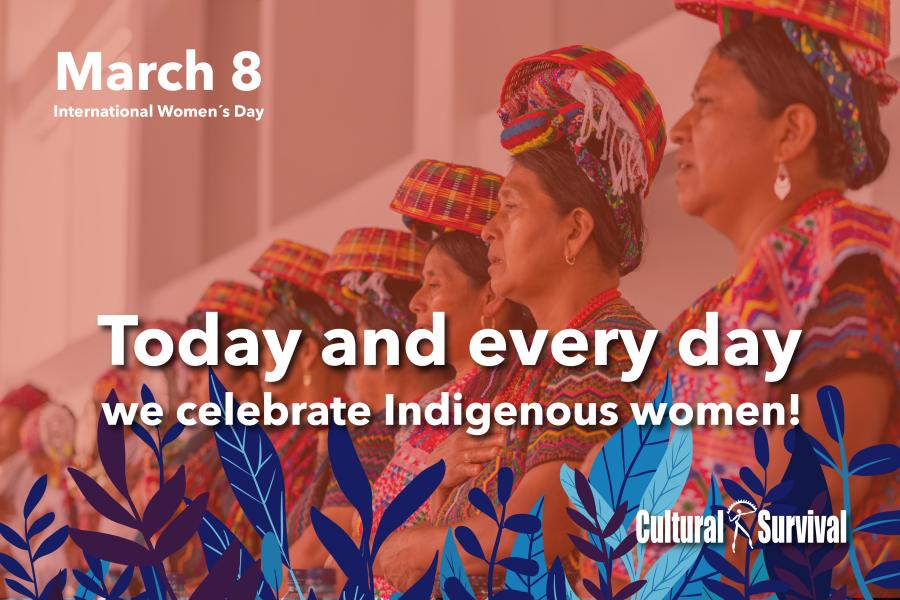Global Response
Our campaign to stop a Chinese nickel mine from dumping toxic waste into the ocean off Madang, Papua New Guinea, has been something of a roller coaster ride. We launched our letter-writing campaign, which many of you participated in, but it soon became clear that the situation required more support. The Indigenous communities have brought suit against the mine, asking for an injunction, but their case is being handled by a single lawyer with very limited resources, so we helped her find funding so she can bring international marine scientists to court. Then, on September 21, the first day of the trial, the Rai Coast plaintiffs didn’t show up, and it was soon discovered that the mining company had “persuaded” them to abandon the case. Paid thugs hired by the mining company directly threatened the lives of the three men and their families. The company also sent threatening letters to local government authorities, warning of dire consequences if the communities blocked the ocean-dumping plan. Despite death threats, the plaintiffs’ lawyer, Tiffany Nonggorr, quickly found another plaintiff to carry on the case. Thirty-seven more people are seeking to join the suit.
The new plaintiff, Louis Medaing, a leader of the Tong and Ongeg clans, has reported threats against him and his clans since the day he filed his case, and on October 12 he sued the mining company for contempt of court. “My family and clan members have been put under intense pressure by the mine owners…to discontinue the court case,” he said. Company representatives told him that if he proceeds with the trial, all Tong and Ongeg clan members employed by the mining company will be fired. For now, the trial and the contempt hearings are temporarily delayed while lawyers on both sides adjust to the change in the plaintiffs.
In Panama, our campaign to persuade the government to rescind recently passed laws is also showing progress. The three laws put severe limitations on public protest, excuse police from human rights violations, release industries from filing environmental impact statements, and override traditional Indigenous methods of choosing their leaders. The letters that you wrote made a difference: the president of Panama agreed in October to revoke Law #30, the most egregious of the three laws. We’re now increasing our pressure on him to revoke the other two.
In Kenya, our campaign to stop police violence against Samburu villages has continued to bear fruit. In response to our documentation of that abuse, a Kenyan organization has initiated trainings for police who are sent to Samburu East district. Michael Tiampati, national coordinator of the Pastoralists Development Network of Kenya, reports that many of the police officers “are ignorant because of stereotypes…They are transferred to this area and they want to convert pastoralists to suit their imagined ‘civilised’ society. So we told them of the need to respect the people's social, cultural, economic and religious way of life because their job is to ensure security of persons and property but not to convert communities.”
Tiampati reports that his trainings for Administrative and Kenya Police forces have been “verycsuccessful.” They were opened by the Samburu East district Commissioner, and they focused on Kenya’s new constitution, which contains strong safeguards against abuse of power, as well as regional and international human rights standards on policing and the rights of citizens. Tiampati says the officers were receptive, and they “acknowledged that their actions have not met the required human rights standards.” They indicated, however, that their orders came “from above,” which underscores the need for continued pressure to be applied to the highest government officials.
Tiampati said the trainees accepted that they have not shown respect to the Samburu communities and that the police proposed joint (community and police) training in the villages to create harmony and develop good working relations. The Pastoralists Development Network of Kenya is now seeking resources to implement these trainings.
Endangered Languages Program
In June 2011, Cultural Survival will again coordinate the National Native Language Revitalization Summit at the Smithsonian Institute. In conjunction with the summit, Cultural Survival will partner with Advocates for California Indigenous Language Survival to operate a two-week training program called the National Breath of Life Institute. These trainings sessions will help 40 Native language advocates learn how to find and use the material stored in the National Archives and the Library of Congress on their languages.
Last year Cultural Survival helped language partner the Sauk Language Department apply for and receive a substantial grant from the federal Administration for Native Americans. And the Sauk program has been putting the money to good use. They exceeded all benchmarks for both language learning hours (240 per quarter) and second-language learners’ proficiency improvements.
Cultural Survival program officer Jennifer Weston participated in a federal Head Start consultation session, to help the government direct more Head Start money to Native language programs. She also submitted a formal resolution titled Declaring Native American Languages in a State of Emergency to the National Congress of American Indians in collaboration with the National Alliance to Save Native Languages. The goal is to get the National Congress of American Indians to pressure President Obama to sign an executive order offering more support for language programs. Cultural Survival also helped craft the executive order.
Guatemala Radio Project
Since mid-August, the Guatemala Radio Project staff and radio station volunteers have been participating in a series of street protests aimed at moving the community radio bill to a vote in Congress. The bill, which would fully legalize the community radio stations, was introduced and moved out of committee over the summer, but the Congress has failed to bring it to a vote, largely because of the influence of some major commercial radio stations. These stations fear competition from the community stations, a concern that is in fact baseless. The most recent of the protests, on Columbus Day, produced some very heartening results: the president promised to hold a series of roundtable discussions with government officials, community radio representatives, Cultural Survival staff, and representatives of the commercial radio stations association. The goal of the talks is to resolve the commercial stations’ concerns and move the community radio bill to a vote as soon as possible.



